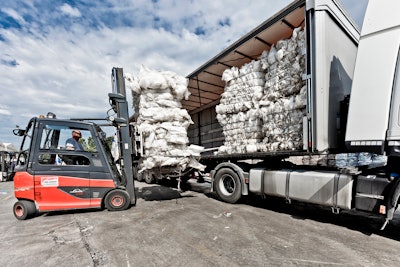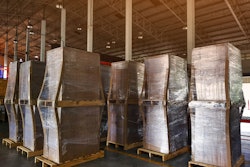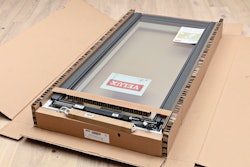
This content was written and submitted by the supplier. It has only been modified to comply with this publication’s space and style.
Champagne’s market share in the world of sparkling wines is 9% in volume and a whopping 33% in value, according to Comité de Champagne. In 2020, the turnover was 4.2 billion Euros. It’s a niche but rich market that can offer opportunities for business development and process improvement towards a more sustainable model. This is where Aliplast comes in—the company has almost 40 years of experience in the plastic recovery industry and offers a specific service portfolio, both to the champagne and bordeaux companies.
Specifically, the Italian company provides and recovers two types of materials: PE films used for the exterior packaging of bottles and PS interlayers used to protect those same bottles during transportation. Both materials are part of closed loop processes, in which waste materials are recovered, cleaned, processed again and then reintroduced in the same supply chain, therefore increasing its sustainability.
French companies in the wine industry use two types of material: heat-shrink plastics, used to package new bottles, and interlayers, used to hold together pallets. The material is recovered once the packaging is removed from the bottles; it is then washed, melted, and processed to produce a film (and a small quantity of granules) in the Aliplast plant located in Ospedaletto di Istrana, Treviso. This end-to-end closed-loop process recovers several hundreds of tons of material, which makes Aliplast one of the biggest collecting and recycling company on the French market for this type of film.
The same principle applies to the interlayers that serve as partition between bottles, placed between the bottom of the crate and the bottles. The material used here is lacquered polystyrene, which has a high volume with a relatively low weight, and this requires special care during the recovering and processing stages. For this reason, once the waste has been recovered from the crates, the process is carried out in the French Aliplast plant, where the material is ground, washed and manufactured to become a secondary raw material, which is then reintroduced in the supply chain. This whole operation has led to the recovery, in 2021, between films and interlayers, of approximately 300 tons of plastic material.

























